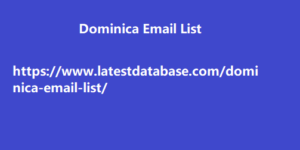other search engines. The goal is to attract people
who are looking for solutions that your product can provide Enterprise SEO: search engine optimization for large, enterprise websites. quantity of traffic coming from search engines to webpages on enterprise companies. Niche SEO: refers to the specific set of tactics especially effective in a specific business niche. The list is endless; there are as many types here as niches. For example, SEO for startups, SEO for lawyers, plumber SEO, wedding photographer SEO, and so on. Voice SEO: optimizing for voice search queries, often focusing on natural language and question-based content. AI SEO: using artificial intelligence like ChatGPT to inform and automate SEO strategies.
Taxonomy SEO: refers to the practice
of organizing and categorizing website content in a logical and hierarchical manner. It involves creating a classification system that makes it easier for users to navigate the site and find relevant information. Barnacle SEO/Parasite SEO: attaching content about a brand to highly authoritative websites to gain more visibility in search (thanks for the tip, Chris Haines). Syndicated SEO: refers to a strategy where content is distributed or syndicated across various websites to increase visibility and drive more traffic to a primary site (thanks for the tip, Andy Beard). SEO for academic journals: refers to the process of
enhancing the visibility and accessibility
of academic journal articles in search engine results, including but not limited to Google Scholar (thanks for the tip, Katherine Watier Ong) Advanced SEO:techniques and tactics that go beyond basic search engine optimization, for instance, advanced link building or advanced keyword research (thanks for the tip, Raju Khadka). Branding SEO (aka Brand SERP): optimizing a brand’s online presence to improve its visibility and reputation in search engine results (thanks for the tip, Onur Kılıç). Podcast SEO:
optimizing podcast content to make it
more discoverable and accessible Dominica Email List through search engines, including Google and podcast-specific platforms like Apple Podcasts and Spotify (thanks for the tip, Martin Hinterdorfer). Forensic SEO: “a form of SEO that specifically deals with the analysis of visibility loss either over time or with a sudden traffic crash, and how to strategically recover quickly while minimizing the negative effects of optimizing too much too soon. It often deals with recovering from Google penalties and optimizing toxic backlink
profiles.” (thanks for the tip, Madison Sawyer
, I couldn’t have defined it better). Travel SEO: optimizing a travel-related website to rank higher in search engine results, with the goal of attracting more organic traffic from people interested in travel topics (thanks for the tip, Liubov Liashko). B2B SEO: refers to the strategies and tactics used to increase the visibility of a business’s website in search engine results, specifically targeting other businesses as
opposed to individual consumers
(thanks for the tip, Stephen). B2C SEO: ditto Targeted pages in an automatic but you’re targeting individual consumers (thanks for the tip, Stephen). Paywall SEO: optimizing content behind a paywall for search engines. It includes showing snippets to search engines for indexing, using structured data to indicate the presence of a paywall, and balancing content access to improve search rankings and attract subscribers (thanks for the tip, Andy Beard). SEO philosophies White Hat SEO: refers to the use of SEO strategies,


